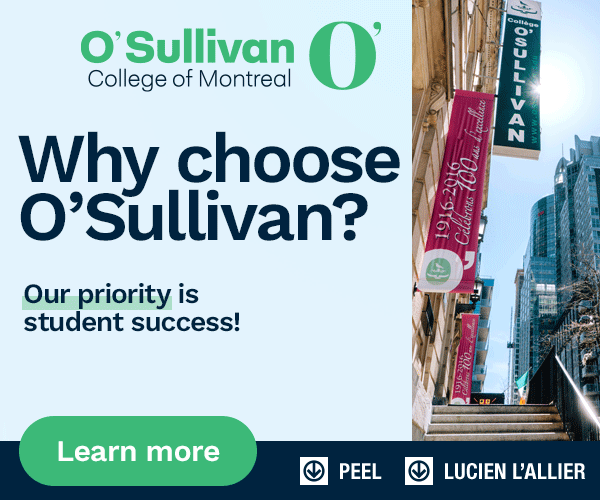The University of Winnipeg is one of three post-secondary institutions in Canada to receive the inaugural Robbins-Ollivier Award for Excellence in Equity.
Valued at $100,000 over one year, this Tri-Agency Canada Research Chairs Program (CRCP) award recognizes the significant and impactful contributions that Marjorie Griffin Cohen, Louise Forsyth, Glenis Joyce, Audrey Kobayashi, Shree Mulay, Susan Prentice, Michèle Ollivier, and Wendy Robbins made to increase the level of equity in the CRCP, and Canada's research ecosystem more broadly, by way of their 2003 Canadian Human Rights complaints and their concerted efforts in the mediation processes, which led to both the 2006 Settlement Agreement and its addendum in 2019.
UWinnipeg's proposal, Indigenous Leaders in Science, was submitted by Dr. Nora Casson, Dr. Melanie Martin, Dr. Yannick Molgat-Seon, Dr. Lisa Sinclair, and Angeline Nelson. This project proposes to develop a harmonized suite of programs on campus to encourage Indigenous students to pursue careers and graduate studies in the natural sciences and engineering.
"We have a really strong base of programs for students, but there are ways in which they could be strengthened," Dr. Casson said, noting the Pathway to Graduate Studies (P2GS) program and Indigenous Summer Scholars Program (ISSP) as examples. "The proposal came out of talking to students about what the barriers are to them accessing those programs, as well as conversations with the Aboriginal Student Services Centre and with faculty members."
Dr. Casson says it's incredibly exciting to be recognized with this award, because it shows the Tri-Agency believes programs like P2GS and ISSP are as awesome and successful at supporting students as the UWinnipeg community knows they are.
"To have that recognized at a national level is incredible," she added. "Hopefully this raises the profiles of these programs so other institutions who are looking to increase Indigenous student engagement can look at some of the things that we've done here at UWinnipeg."
Supporting students
UWinnipeg alumni Mohamed Crossman-Serb and Sharissa Neault both say the ISSP and P2GS program played pivotal roles during their studies.
Crossman-Serb graduated from UWinnipeg in 2019 with a double major in kinesiology and chemistry. He's now in the Master's in Development Practice: Indigenous Development program.
In 2020, he was an ISSP scholar and worked with Dr. Casson on her project, Human Influences on Water Quality. He says his four weeks in the program equipped him with knowledge on water quality that has assisted him in different aspects of his life, including his master's studies.
Crossman-Serb has also been actively involved in the P2GS program, first as a chemistry instructor in 2021 and then as a coordinator in 2022.
"I think it's incredibly important to have tailored programs for Indigenous students," he said. "There are many systemic barriers to Indigenous students in research and STEM. Drs. Casson and Martin are so invaluable in breaking many of these barriers and so many students, including me, owe so much to these two for their work with the P2GS program."
Neault, who was named Spring Convocation Valedictorian last year and is the former President of the UWinnipeg Chapter of the Canadian Indigenous Science and Engineering Society (.caISES), also volunteered with the P2GS program this summer as a coordinator.
"In addition to the classes and research, it's important to make sure the students stay connected to their culture too," she explained. "I had some super exciting events planned, including a plant identification walk at the Brokenhead Interpretive Trail, a ribbon skirt workshop, and canoeing with last year's P2GS coordinator Mohamed Crossman-Serb."
Neault says programs like .caISES, P2GS, and ISSP have "her heart," and no matter where she is or what she's doing, she's always happy to come back to support them.
The mentorship students receive from faculty, she noted, as well as from peers and alumni, is invaluable, especially for those who are first-generation university students.
"That is also why it's so important for me as a UWinnipeg alum to return," Neault said. "Mentorship is our way and has been our way for a very long time. I see it as my responsibility as an Indigenous woman to return and support those who walk the same path."
What's next?
Thanks to the funding from this award, Dr. Casson says the plan is now to:
- Evaluate programs based on the feedback of students who have participated in them;
- Establish a capstone cohort of students called the Indigenous Leaders in Science to reflect and contribute to future program offerings; and
- Provide additional support to students through the form of eliminating logistical barriers like childcare, parking and bus passes, etc.
Because the funding is only for one year, Dr. Casson says it's extremely important that they're able to utilize extra resources to ensure the programs are as accessible to students and as supportive as they possibly can be.
"The goal is to use this year to build on our past success and to set up a solid and sustainable foundation for the programs' futures."











